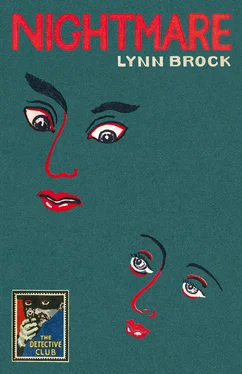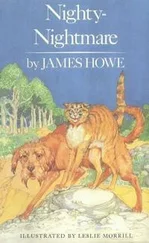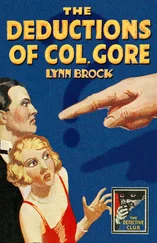He made an effort to turn his thoughts again towards the future, but there was only a past from which he had escaped. What had he been thinking about? Oh yes—those two old plays he had written … donkey’s years ago. Awful tripe—especially the second one—as well as he remembered. Plays … after that …
His memory suddenly recalled vividly a very large packing-case which he had seen just before the Christmas of 1911 in a corner of a room at Miss Storm’s theatre. The room had been the office of Miss Storm’s official reader, a bored, sardonic young man who had raised the lid of the packing-case and exhibited its contents with a grin. It had been filled to overflowing with tattered typescripts—hundreds of them—churned, it had seemed to Whalley, deliberately, into hopeless confusion. ‘The Great Unactable’, the sardonic young man had explained, and had torn a page from someone’s Act II to light a cigarette with at the fire.
The kind, considerable purr of the train was delicious. Whalley shut his eyes upon that chilling memory and went asleep.
After a fortnight in London he was transferred to Ducey Court, the residence of a large estate a little distance outside Rockwood, converted temporarily into a hospital for officers. A few minutes after he had been deposited in one of the cots of a small upstairs ward, the door of the room re-opened and a slim girl in V.A.D.’s uniform appeared, bearing a laden tea-tray. While one hand had reclosed the door behind her, her long steady eyes took stock of the new arrival gravely and then smiled. In that moment, they were both ever afterwards agreed, they both fell in love.
With this artless cliché they were compelled, ultimately, to rest content, though, naturally, they made afterwards the usual attempts to define exactly what had really happened to them in that miraculous instant. At all events, whatever had happened, they both knew beyond all thought of doubt, had been waiting from the beginning to happen and would go on happening until the end. This decided, in a little over a week—with a total actual acquaintance of less than twenty-four hours—they resolved to marry one another, and did so—Whalley’s shoulder having made unexpected progress—in the week following the Armistice.
Elsa Barnard was then twenty-five. As regarding family ties, her isolation was almost as complete as Whalley’s own. Her mother had died during her childhood. Her father—of Barshire family and, like Whalley’s, a soldier—had rejoined his old battalion at the outbreak of the War and been killed in the third week of it. Two brothers and no less than seven cousins had been swept away in the following four years. A married sister and a widowed and childless uncle—her mother’s elder brother—in whose house and charge she had lived since her father’s death, were her only living relatives.
Whalley was duly introduced to them, received with cold politeness, and, after some cross-examination, given to understand that they both washed their hands of Elsa’s unwisdom in marrying an individual of whom she knew nothing save that he had a disabled shoulder, no occupation, no friends in England, and no prospects save a hope that he might write plays. They both attended the quiet little wedding, however, and Mr Loxton, the uncle, gave the bride away, having previously presented her with a cheque for a hundred pounds.
The Whalleys spent their short honeymoon at a little Surrey inn under the lee of the Hog’s Back. Towards its close they discovered, just outside Puttiford, the adjoining village, a tiny seventeenth-century cottage whose tenant, desiring to spend the following year abroad, agreed to let it to them, furnished, for twelve months, beginning from the following January. This impetuous arrangement completed, they returned to Rockwood—Whalley to Ducey Court for further treatment pending his demobilisation, and Elsa—no offer of hospitality having been made either by her uncle or her sister—to the house of some friends. As she no longer attended the hospital and as his hours of escape from it were still strictly limited, they saw, for nearly a month, very little of one another. During that period of intolerable separations he found ample time to realise what he had done—and what he had to do. The first realisation amazed him; the second transformed his amazement to stupefaction.
Into the paradise in which Elsa and he had strayed for the past two months the serpent £ s. d. had been permitted to make but one brief intrusion. On the afternoon on which they had become engaged, as they returned slowly towards the hospital along one of the drives of the park, they had halted to watch the deer drifting in the September sunshine.
‘It doesn’t seem of any real importance, somehow,’ Elsa had said. ‘But I suppose we shall have to eat and wear clothes and live in some sort of a house. I’ve been taking it for granted that you have some money, Simon. I have none, you know—just fifty pounds a year my mother left me. Poor pater died without a red.’
He had laughed and said, with perfect confidence and tranquillity, as his arm had drawn her slenderness closer to him, ‘I have a fountain pen and about six thousand pounds to buy ink with. We ought to be able to write quite a lot of plays before all that ink is used up, you know. If you really feel that we shall want to eat, one winner ought to supply us with a square meal a day for ten years or so. Naturally, we will write the winner first. Don’t tell me that you’ve begun to repent already, Elsa. I’ve used the fountain pen, you see. They’ll never take it back at the shop.’
There had been no further discussion of ways and means. In those few airy words of his he had disposed of all the stupendous difficulties of their future. It was amazing. Not once during the past two months had he caught a glimpse of the chill, dangerous actualities that lay in wait outside his warm, tender, sunlit dream. He had lived spellbound by all the marvellous, lovely, gracious things that were Elsa—her eyes, her hair, her smile, her voice, her way of holding her fork, her skill in shaving him—ten thousand lovelinesses. In the bright aura of courage and confidence that surrounded her he had basked—content, self-complacent, blind to everything beyond. All things had seemed possible, easy, certain. Amazing, for, all his life, he had always foreseen difficulties. Amazing.
Well, the music had to be faced. No more airy talk of writing plays—some time or other. He must throw off the spell—shut himself out from it, tear his mind out of its lazy happiness and start it out on the cheerless, lonely quest for an idea. Now—at once.
He found a deserted, dark little room beyond the operating-theatre, filled with stacked cane-bottomed chairs, and, escaping from the cheerful clamour of the wards, retired there in the mornings as soon as the masseuse had finished with his shoulder. Sometimes he sat there for three hours on end, staring at the dusty chairs, and smoking cigarette after cigarette. Nothing came of these seances, however. His mind appeared capable of two functions only—spasmodic reminiscence of detached experiences during his War service, and impatient eagerness to be with Elsa again. After ten days of this fruitless discipline, he abandoned it and spent his mornings wandering about the park. He had never been able to think constructively, however, out-of-doors or when moving about. Having decided that there was no hope of settling down to work until he had a quiet, comfortable room to work in, he became rather irritably impatient for his demobilisation, which, for some unknown reason, had been postponed.
Читать дальше












